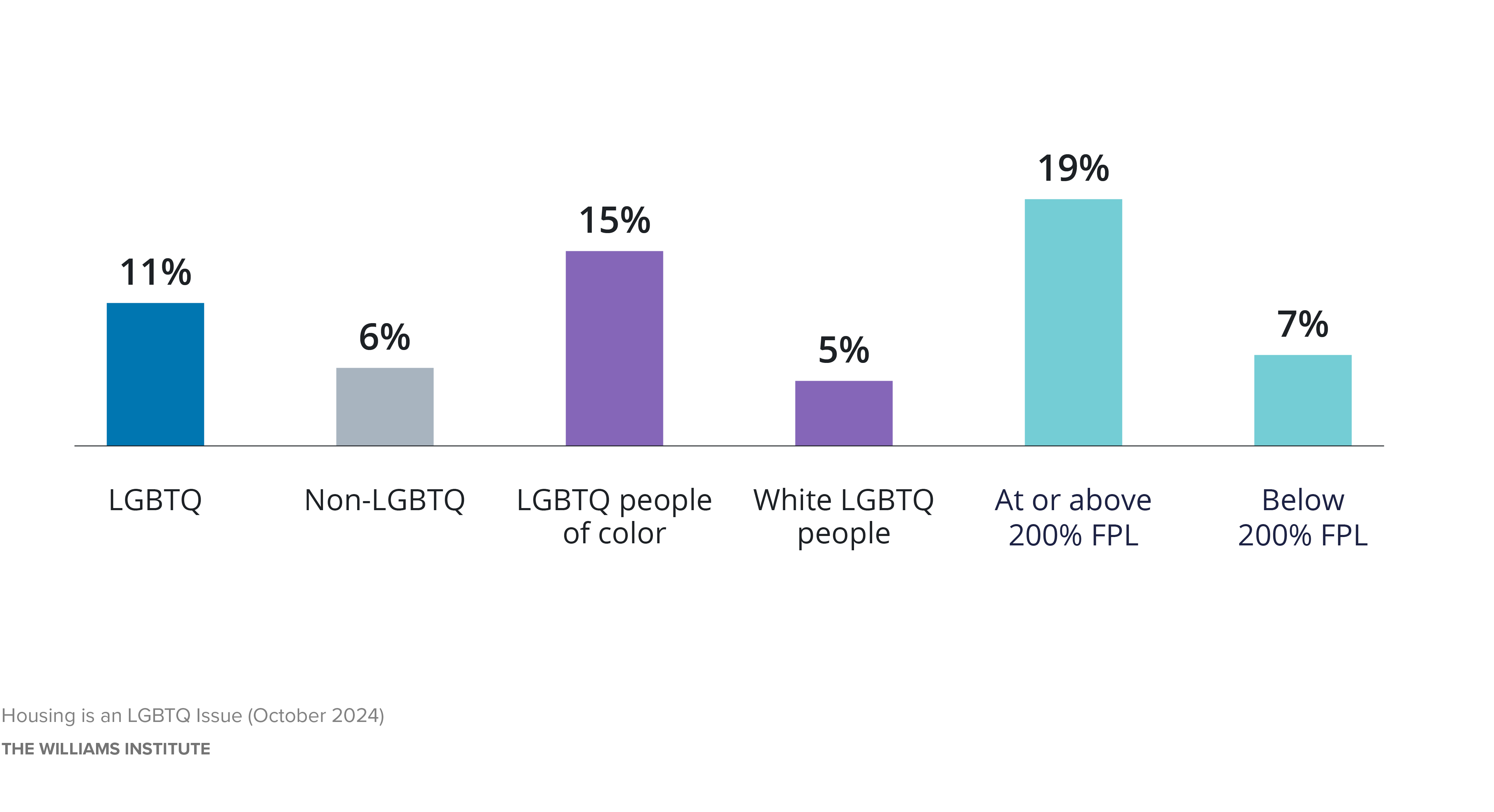LGBTQ people have known that housing is an LGBTQ issue for decades. Since the 1980s, housing support has been critical to meeting the needs of people living with HIV. Over the past two decades, the LGBTQ community has developed housing support for LGBTQ youth and older adults, who are more likely to face housing instability.
Recent research by the Williams Institute, the TransLatin@ Coalition, and the Los Angeles County Department of Health reveals that housing is a top priority for LGBTQ people in Los Angeles County, particularly for those who are struggling to meet the high cost of living in LA. We found that the 650,000+ LGBTQ people in LA County desire housing that is affordable, safe, and connected to community.
Affordability
When asked about their biggest worries, financial concerns, including housing costs, were at the top of most LGBTQ people’s lists. LGBTQ people in Los Angeles County are more likely than non-LGBTQ people to be living in poverty, to rent their homes (as opposed to own), to have housing costs that take up much of their income, and to be unhoused.
Safety
People need homes that they can afford and that are safe. For LGBTQ people in Los Angeles, safety means housing that is free from violence, discrimination, and harassment. It also means well-maintained housing located in areas where they are not exposed to environmental dangers.
Discrimination and Harassment
Many LGBTQ people in Los Angeles County report facing discrimination and harassment from their landlords, other tenants, and neighbors. Over one in five (21%) TNB people surveyed who have sought housing in the last five years believed they were denied housing because of their gender identity or their gender expression or appearance.
Shelter Access
For those who are unhoused, including many TNB people, safety concerns can also mean being afraid to access homeless shelters and other supportive services. More than one-quarter (28%) of TNB people surveyed said they have been denied access to shelters because of their gender identity.
Environmental Concerns
LGBTQ people also expressed concerns about safety because their housing was poorly maintained by their landlords or because they were exposed to environmental dangers. Living near highways increases exposure to harmful pollutants, posing serious health risks.
Community
Where we live is also the foundation of building connections with family, friends, and community. This is especially important for LGBTQ people in Los Angeles County, particularly those who are older and who are more likely to live alone. For them, feeling unsafe can lead to isolation and loneliness and being disconnected from social and community support.









